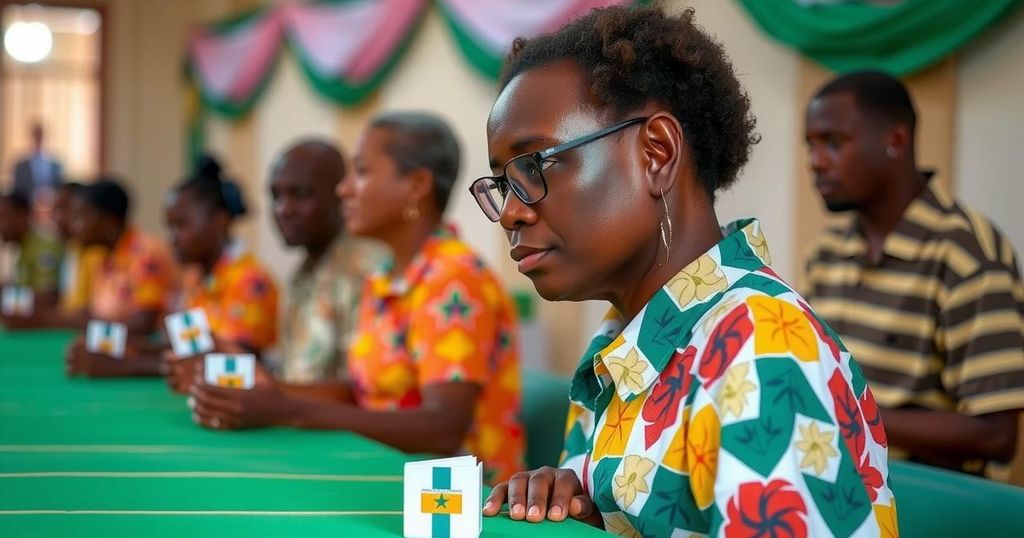Ghana Elections: A Critical Test Amid Economic Crisis
Ghana held presidential and legislative elections amidst a severe economic crisis, with 18.7 million registered voters. The race is dominated by Vice President Mahamudu Bawumia of the NPP and former President John Mahama of the NDC. With economic instability and public dissatisfaction palpable, the elections reflect critical choices facing the nation, including high inflation and issues related to illegal gold mining.
Polls opened on Saturday in Ghana as the nation embarked on presidential and legislative elections, marking a critical test for democracy in a region plagued by extremist violence and political upheaval. Approximately 18.7 million citizens are eligible to vote in a country grappling with one of the most severe economic crises it has faced in decades. Despite having twelve candidates in contention, the election largely revolves around two prominent figures: Vice President Mahamudu Bawumia from the ruling New Patriotic Party (NPP) and former President John Dramani Mahama of the National Democratic Congress (NDC).
Ghana once stood as a stalwart example of democratic governance and economic prosperity in West Africa, yet recent years have seen a stark decline due to rampant inflation and unemployment. An Afrobarometer poll indicates that 82% of Ghanaians believe the country is on the wrong path. Most troubling is the economy’s downward trend, which included a default on foreign debt last year and soaring inflation rates.
Both candidates attempted to position their respective parties as solutions to the economic quandaries facing the nation in their final campaign events. Bawumia, an economist and former central bank deputy governor, vowed to stabilize the economy by continuing the policies of the outgoing administration. Conversely, Mahama emphasized the need for a comprehensive “reset” across various sectors ranging from governance to health care.
As Ghanaians head to the polls, mixed sentiments permeate the atmosphere. While campaign activities ramp up with rallies and public displays, deep-rooted concerns regarding the economy, illegal gold mining, and overall governance remain pivotal issues for voters.
The elections in Ghana are being conducted against a backdrop of significant economic instability, highlighting the challenges faced by the nation. With inflation soaring and unemployment rampant, the political landscape is primarily a contest between the NPP, which has been in power, and a historically significant opposition party, the NDC. The public sentiment reflects a desire for meaningful change as many believe the country is not progressing in a favorable direction despite its history of democratic resilience.
The elections in Ghana symbolize more than a simple political contest; they represent a critical moment for potential change amid significant economic turmoil. The results will serve as an indicator of the citizenry’s approval of the current administration’s handling of the economy and the promise of a better future. With two principal candidates vying for leadership amid pressing economic concerns, the upcoming elections are poised to reveal the electorate’s response to the challenges at hand.
Original Source: www.voanews.com




Post Comment